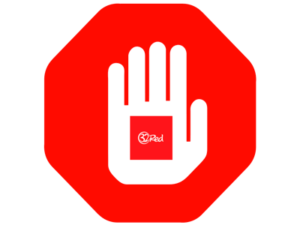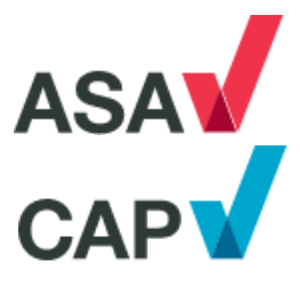ASA Rule Against 32Red Over Advert Featuring Jack & The Beanstalk That May Appeal To Children
 The Advertising Standards Authority has recently introduced new rules about the type of adverts that can be made by gambling companies, specifically with regards to the use of images that are likely to appeal to children.
The Advertising Standards Authority has recently introduced new rules about the type of adverts that can be made by gambling companies, specifically with regards to the use of images that are likely to appeal to children.
Adverts are supposed to be ‘socially responsible’ with regards to the need to protect young people and other vulnerable groups. That includes not being able to imply that gambling can solve problems like personal and financial issues, but it also needs companies to ensure that they don’t use images like cartoons that children will find appealing.
It appears that 32Red have fallen foul of these new rules, with recent adverts that the company has paid for with Google, meaning that the adds would appear if someone were to search for the phrase “Jack and the Beanstalk”. Along with information about the fairy tale, which was turned into a popular pantomime, users would also be greeted by the two gambling adverts.
The ASA decided that that was not allowed, even though there were no actual images alongside the advert and it was only the words that the ASA objected to because of the context in which they appeared.
Is The ASA Starting To Clamping Down?
 The new rules regarding online adverts came into force on the first of April 2019, saying that they could not appeal to people likely to be under the age of 18. The other factor of the ruling was that adverts were also not allowed to feature celebrities, sports stars or even characters that either are or appear to be under the age of 25.
The new rules regarding online adverts came into force on the first of April 2019, saying that they could not appeal to people likely to be under the age of 18. The other factor of the ruling was that adverts were also not allowed to feature celebrities, sports stars or even characters that either are or appear to be under the age of 25.
Tottenham Hotspur and William Hill fell foul to that when the Spurs starting line-up was announced alongside a William Hill advert, with Harry Winks and Davinson Sanchez both being under 25 at the time the line-up was announced.
A company called Entertaining Play also had to remove an advert that appeared on the Mirror Online after the ASA felt that it was likely to appeal to children. Trading as Monopoly Casino, they had an advert featuring Mr Monopoly encouraging people to join the site and play casino games.
The Advertising Standards Authority felt that it was likely to appeal to children because Monopoly is a board game ‘generally played by or with children’. With that in mind, the ASA decided to uphold the complaint and asked Entertaining Play not to allow the advert to appear again.
There Were No Images On The 32Red Advert
 The reason it looks as though the Advertising Standards Authority is starting to clamp down on betting companies is that the ruling against 32Red came in spite of the fact that no images actually featured on the adverts that the ASA upheld the complaint against. Here’s what they said regarding that:
The reason it looks as though the Advertising Standards Authority is starting to clamp down on betting companies is that the ruling against 32Red came in spite of the fact that no images actually featured on the adverts that the ASA upheld the complaint against. Here’s what they said regarding that:
“The ads’ only reference to Jack and the Beanstalk were in the headings in a plain font and…they did not, for example, include any child-friendly imagery”.
Given the recent rule change and clamping down by the ASA appears to have been based on the imagery available, it appears that they’ve taken things to the next level by choosing to uphold the complaint against 32Red. The decision was based on the fact that Jack and the Beanstalk is ‘a highly popular classic children’s fairy tale’ and the inclusion of the words in the advert meant that it was likely to appeal to children.
The two adverts were aimed at getting people to join the 32Red online casino by offering them incentives to play on the slot game Jack and the Beanstalk, which itself might come under further scrutiny in the future if the Gambling Commission feels as though the game is likely to appeal to young people.
What 32Red Have Said
 32Red admitted that the adverts were part of a campaign that targeted Google searches that featured the titles of games that were available on 32Red. The company had added the game to their list of ‘high risk’ titles, meaning that visitors to the website would be unable to see it until they had verified their age. The problem was that it had been included on the list of games to target on Google ‘by accident’.
32Red admitted that the adverts were part of a campaign that targeted Google searches that featured the titles of games that were available on 32Red. The company had added the game to their list of ‘high risk’ titles, meaning that visitors to the website would be unable to see it until they had verified their age. The problem was that it had been included on the list of games to target on Google ‘by accident’.
32Red had no issue with the ASA asking them to remove the advert, doing so as soon as they were contacted about it. They also said that they checked the rest of the paid for adverts to ensure that none of the other high risk games had been included on the list by accident, as well as putting a system in place to avoid such a thing happening in the future.
Even so, the Advertising Standards Authority felt that both of the adverts were in breach of CAP Code (Edition 12) rules 16.1, 16.3, 16.3.12 and 16.3.13. They said that the advert should not appear again in the form that it had been complained about.



